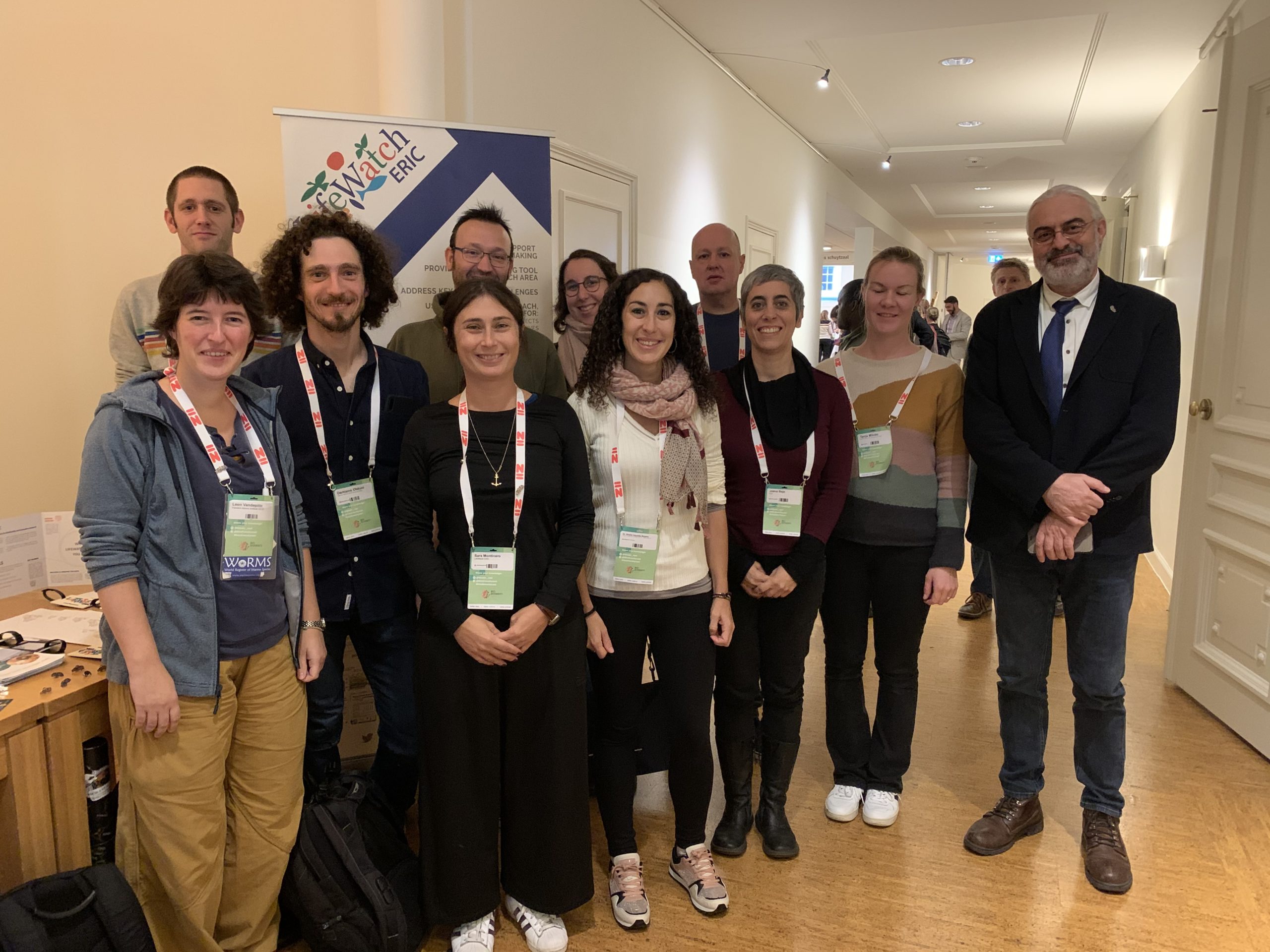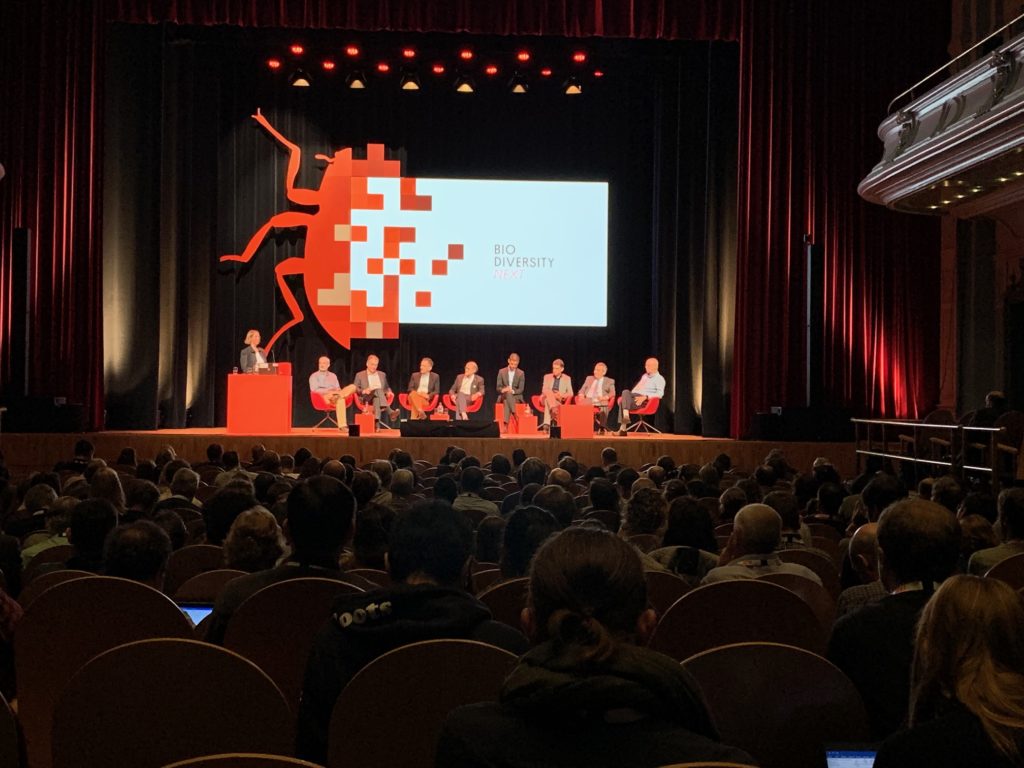
Biodiversity Next conference shapes a powerful coalition of biodiversity information scientists and Research Infrastructures.
The world’s largest conference of biodiversity informatics was held from 22 – 25 October in Leiden, the Netherlands. The Biodiversity_Next 2019 conference brought together top scientists in the field of biodiversity informatics with one main goal: to jointly intervene in the global biodiversity crisis through big data. Referred to by some researchers as the 6th global extinction wave, the current biodiversity crisis is characterised by the disappearance of thousands of species. The root causes of this extinction wave are climate change, land-use change, and industrialisation. Effective intervention in this crisis relies heavily on mobilising globally interoperable biodiversity data, so the stakes are high for biodiversity data scientists to facilitate decision making with evidence-based knowledge. Biodiversity_Next kicks off and builds upon a global collaboration between key stakeholders and looks into delivering consensus views on the status and outlook of their joint efforts.
Let’s build the future of biodiversity, now and together!
“The major challenge ahead for biodiversity and ecosystem science is of a cultural nature, and it implies moving from working in silos towards a collaborative framework approach, where we all come together, think together and deliver together nature-based solutions to societal challenges” said Christos Arvanitidis, CEO of LifeWatch ERIC, which co-organised the conference. “Biodiversity_Next marked a key step towards a global biodiversity information strategy, its wide success and enthusiastic reception from different stakeholders and the large audience proves how much our research communities and policy makers seek more opportunities to work together and establish new synergies.”
Connecting science, connecting scientists
The stakeholders in this conference were as varied as their backgrounds were diverse. Around 700 participants from more than 76 nationalities represented all the fields of interest to biodiversity informatics: from computer scientists to biologists, from taxonomists to DNA specialists, making this conference even more important. Not only systems and data need to be connected, scientists also need to establish a common language. The current biodiversity emergency can be effectively tackled only by joining forces, putting together expertise and structuring the knowledge constantly produced by the various research infrastructures, organisations and initiatives.
It is of great importance to engage young scientists in biodiversity informatics as this field presents wonderful opportunities to better understand biodiversity organisation and functioning and improve our capacity to build future scenarios of change. And to do this globally, a coherent capacity-building program is needed across the fields of biodiversity science and information technology and across the globe. The GBIF Young Scientist Award and Ebbe Nielsen Challenge demonstrate how this can be done. Inclusiveness is a keyword. Hot spots of the world’s biodiversity are in countries building up their scientific capacities, and their economies. A global alliance must address their needs for shared knowledge, and shared data.
The ‘Leiden Declaration’: create a global dataset of life on our planet
Key actors got together at the conference to write a white paper outlining the road forward: the ‘Leiden Declaration’, a commitment towards better data, better science, better policy: ‘Scientific infrastructures are essential to generate services in delivering a comprehensive, accessible and actionable body of biological and geological evidence-based knowledge of global reach. An increasing number of national, regional and international level initiatives generate, integrate and share information on the natural world, highlighting their growing importance to underpin the science-policy interplay and decision-making process. Significant data gaps were identified as well as disconnects between infrastructures, which are needed for a holistic and comprehensive understanding of our planet’s biological and geological diversity.’
LifeWatch ERIC commitment in Biodiversity_Next has been very strong, and on top of being one of the co-organisers of the conference, having sat on its Programme Committee, with its CEO, and Steering Board, with our CTO, representatives of LifeWatch ERIC Common Facilities and National Nodes contributed to the overall programme of the conference, chairing sessions, having talks and posters on our Virtual Research Environments and services. In particular, our CTO Juan Miguel González-Aranda presented LifeBlock, the brand-new service created by LifeWatch ERIC that applies for the first time ever blockchain technology to biodiversity data, ensuring their full trackability and FAIR-compliant data and services.
Oral Communications
• Christos Arvanitidis et al., The Collaborative Potential of Research Infrastructures in Addressing Global Scientific Questions – abstract
• Christos Arvanitidis et al., Combined High-Throughput Imaging and Sequencing: Addressing the collections on demand requirement in SYNTHESYS+ project – abstract
• Stefanie Dekeyzer et al., Marine Species Traits in the LifeWatch Taxonomic Backbone – abstract
• Juan Miguel González-Aranda et al.,Facing e-Biodiversity Challenges Together: GBIO framework-based synergies between DiSSCo and LifeWatch ERIC – abstract
• Leen Vandepitte et al., The LifeWatch Taxonomic Backbone: Connecting information on taxonomy, biogeography, literature, traits and genomics – abstract
Poster presentation
• Sheila Izquieta-Rojano et al., Spanish Scientific Network for LifeWatch-ERIC, e-Science Infrastructure for Biodiversity and Ecosystem Research – abstract
